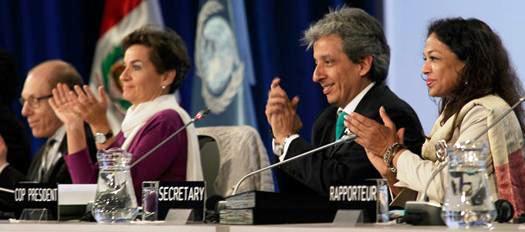
The Commission for a Sustainable London 2012 publishes on November 14 its in-depth review into whether the London 2012 Olympic and Paralympic Games truly delivered the promised levels of sustainability.
The post-Games report, entitled “London 2012 – From Vision to Reality”, presents the final conclusions through key sustainability themes, with information based on first-hand observations and data gathered by the Commission during Games-time.
The report concludes that the London 2012 Games broadly delivered against its sustainability objectives, and highlights several examples of leading practice which the Commission urges future Olympic and Paralympic organisers to follow.
Using the release of its post-Games report, the Commission has called on the U.K. to lead the charge in ensuring London’s lessons are firmly embedded into the events industry.
Ambitious sustainability targets such as zero-waste to landfill and 70% waste to be re-used, recycled or composted are on track thanks to efforts such as meticulous attention to packaging and the effective use of the colour coded three-bin system.
The transport system delivered an excellent service, and London 2012 should be praised for being the first Games to offer a fully comprehensive mobility service. Comprehensive public transport options and effective planning meant that the logistical operation for the Games was delivered with minimal disruption to Londoners.
Another success story was the food, with a wide variety of healthy, sustainably sourced, affordable meals available at most London 2012 venues, driven from the start by the development of the impressive London 2012 ‘Food Vision’ – a first for major event catering.
Shaun McCarthy, Chair of the Commission for a Sustainable London 2012, said: “I have no hesitation in confirming that London 2012 has delivered the most sustainable Games ever, and we congratulate the delivery bodies and all those who contributed to this excellent achievement. But we mustn’t rest on our laurels – more could be achieved if London’s lessons, both the good and the challenging, are heeded by others.”
“London 2012 has raised the bar on sustainability, not just for future Olympic and Paralympic Games but for industry, and for the organisers of major events the world over – from music festivals to football World Cups. By being open to learning from these successes as well as the missed opportunities, future major projects could even out-perform London 2012’s sustainability achievements.
“Minister for Sport Hugh Robertson has said that Government is now ‘focused on delivering the legacy from the Games’. The UK is hosting the Commonwealth Games in 2014, the Rugby World Cup in 2015, and the Olympic Stadium hosting the World Athletics Championships in 2017 – what better way to deliver the legacy than by embedding leading sustainability practice in these events? I call on the organisers to pick up the sustainability baton and carry it forward, demonstrating to the U.K. public that we can rely on them to meet the spirit of London’s sustainability achievements.”
However, the Commission’s findings also point to some areas during the London 2012 Games where further improvements could have been made.
The Live Sites provided an excellent opportunity for the public to soak up the Games atmosphere for free, but the Commission was disappointed that many of the Live Sites refused to allow the public to bring in their own food; compromising affordability and the principle of creating an event for all budgets.
Although Games-time carbon savings are on track to be achieved, the Commission remains disappointed with LOCOG’s (London Organising Committee of the Olympic and Paralympic Games) slow development of a comprehensive energy plan, which meant opportunities were missed for even further carbon reductions.
The opening and closing ceremonies provided a showcase for messages about sustainability, and elements such as the method of waste management on the Olympic Park and use of green space offered spectators an opportunity to observe sustainability in practice. However, the lack of information available about the venues, village buildings and infrastructure was a missed opportunity for communicating their sustainability credentials to visitors.
About the Commission for a Sustainable London 2012
The Commission for a Sustainable London 2012 is an independent body which monitors and assures the sustainability of the London 2012 Olympic and Paralympic Games. When London bid to host the 2012 Olympic and Paralympic Games, it promised to have independent monitoring of the sustainability of the programme. The Commission was set up in January 2007 to fulfil this promise. It is the first time such a Commission has ever been established. The Commission monitors the sustainability plans, objectives and progress of the organisations responsible for building and delivering the London 2012 Games (the Key Stakeholders). For more information, visit www.cslondon.org.
Source: Commission for a Sustainable London 2012.












